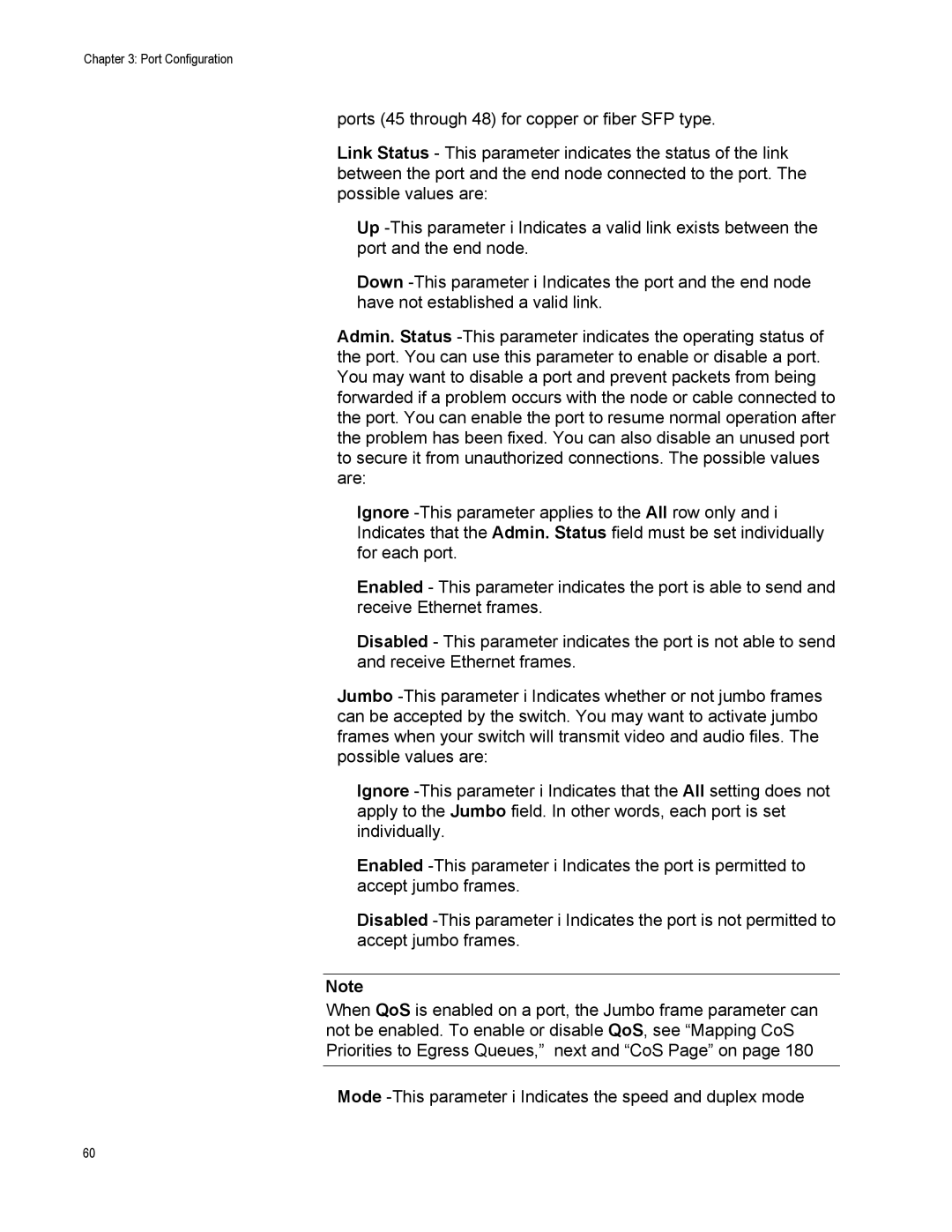Chapter 3: Port Configuration
ports (45 through 48) for copper or fiber SFP type.
Link Status - This parameter indicates the status of the link between the port and the end node connected to the port. The possible values are:
Up -This parameter i Indicates a valid link exists between the port and the end node.
Down -This parameter i Indicates the port and the end node have not established a valid link.
Admin. Status -This parameter indicates the operating status of the port. You can use this parameter to enable or disable a port. You may want to disable a port and prevent packets from being forwarded if a problem occurs with the node or cable connected to the port. You can enable the port to resume normal operation after the problem has been fixed. You can also disable an unused port to secure it from unauthorized connections. The possible values are:
Ignore -This parameter applies to the All row only and i Indicates that the Admin. Status field must be set individually for each port.
Enabled - This parameter indicates the port is able to send and receive Ethernet frames.
Disabled - This parameter indicates the port is not able to send and receive Ethernet frames.
Jumbo -This parameter i Indicates whether or not jumbo frames can be accepted by the switch. You may want to activate jumbo frames when your switch will transmit video and audio files. The possible values are:
Ignore -This parameter i Indicates that the All setting does not apply to the Jumbo field. In other words, each port is set individually.
Enabled -This parameter i Indicates the port is permitted to accept jumbo frames.
Disabled -This parameter i Indicates the port is not permitted to accept jumbo frames.
Note
When QoS is enabled on a port, the Jumbo frame parameter can not be enabled. To enable or disable QoS, see “Mapping CoS Priorities to Egress Queues,” next and “CoS Page” on page 180
Mode -This parameter i Indicates the speed and duplex mode

